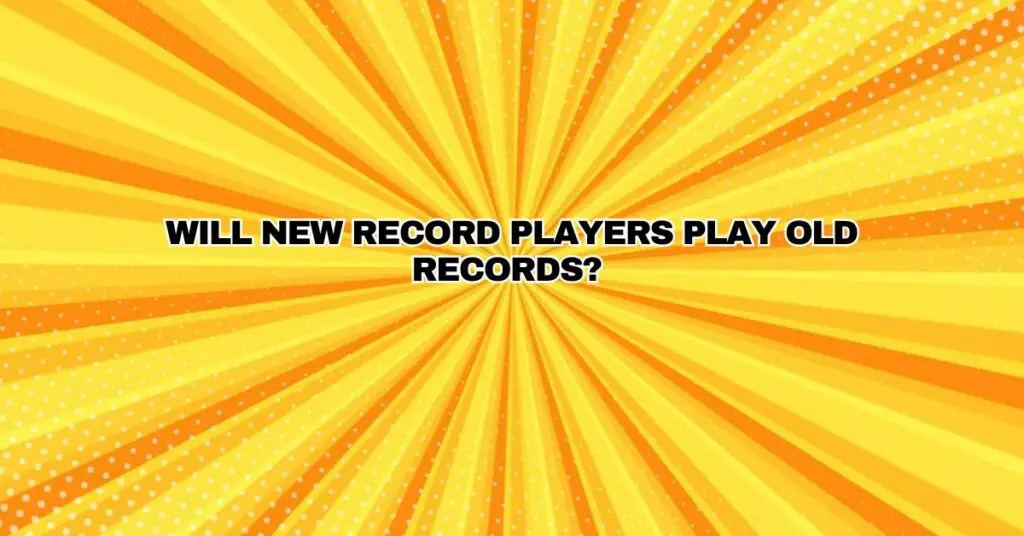The resurgence of vinyl records has brought both new and seasoned music enthusiasts to the world of turntables and record players. Whether you’re an experienced vinyl collector or a newcomer to the format, you might wonder whether new record players can play old records. In this comprehensive guide, we’ll explore the compatibility of new record players with vintage vinyl and provide insights into the factors to consider when playing older records on modern turntables.
Understanding the Basics
To address the question of compatibility, it’s essential to understand the basic components of both record players and vinyl records:
1. Record Players:
- Modern record players, also known as turntables, come in various designs and types. They may be belt-driven or direct-drive, feature automatic or manual operation, and come with different tonearm and cartridge configurations.
2. Vinyl Records:
- Vinyl records can vary in size, format, and playback speed. The most common vinyl formats include 12-inch LPs (Long Play) played at 33⅓ RPM (Revolutions Per Minute) and 7-inch singles played at 45 RPM. Additionally, older shellac records, typically played at 78 RPM, were common in the early 20th century.
Compatibility Factors:
Several factors influence whether a new record player can effectively play old records:
1. Playback Speed:
- New record players are typically designed to handle standard playback speeds of 33⅓ and 45 RPM. Most can play 78 RPM records, but they require a change in stylus (needle) and adjustment of the turntable’s speed settings.
2. Cartridge and Stylus:
- The cartridge and stylus combination plays a critical role in tracking the grooves on a record. Ensure your turntable’s cartridge and stylus are compatible with the type of record you wish to play.
3. Tonearm Adjustability:
- The tonearm’s adjustability is essential for setting the correct tracking force and anti-skate settings, which can vary depending on the record’s format and condition.
4. Condition of Records:
- The condition of older records is paramount. Scratches, warps, and dust can affect playback. It’s crucial to clean and assess the condition of vintage records before playing them on a new turntable.
Tips for Playing Old Records on a New Turntable:
- Adjust Playback Speed: Ensure that your new turntable can switch between the standard playback speeds (33⅓ and 45 RPM) and adjust the settings accordingly. For 78 RPM records, be prepared to replace the stylus with one designed for that speed.
- Choose the Right Cartridge and Stylus: Cartridges and styluses vary in their tracking abilities. Some are designed for high-quality playback, while others are more versatile. Select a cartridge and stylus that suit the era and condition of the records you plan to play.
- Proper Setup: Calibrate your turntable’s tonearm, ensuring the correct tracking force and anti-skate settings are applied. A well-aligned tonearm is crucial for tracking old records without damaging them.
- Clean Old Records: Before playing vintage records, it’s advisable to clean them thoroughly. Use a record brush, anti-static brush, or a wet cleaning method to remove dust and dirt.
- Handle with Care: When handling old records, be gentle. Always handle them by the edges to prevent fingerprint smudges, and avoid placing excessive pressure on the grooves.
- Evaluate Record Condition: Inspect the condition of old records for visible scratches, warps, and damage. Play the records carefully, and if you notice any unusual noise or damage to the stylus, stop the playback.
In Conclusion: Compatibility and Care
In general, new record players are compatible with old records, but the success of playback depends on several factors. With the right equipment, setup, and careful handling, you can enjoy your vintage vinyl collection on a modern turntable. Remember that a well-maintained and correctly adjusted new record player can provide an enjoyable and authentic vinyl listening experience, whether you’re spinning new releases or cherished classics.


